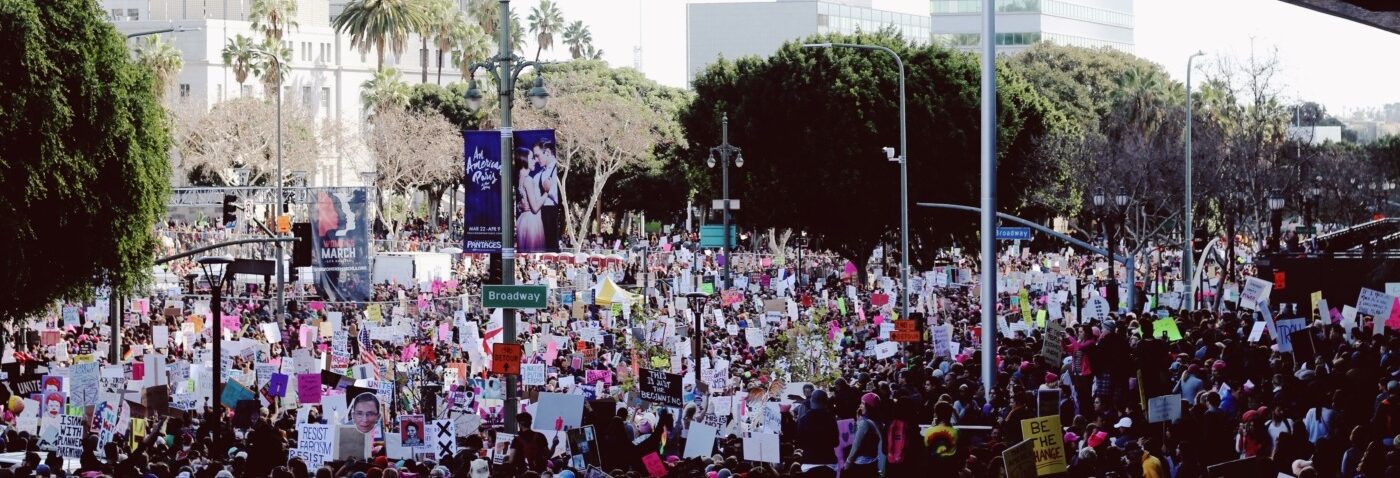Why we need to all stop blaming victims of sexual assault
I have had countless conversations in recent weeks, with friends and peers, about how many instances of sexual assault we have suppressed or ‘let slide’. In the face of Sarah Everard’s death and the revelation that 97% of women between 18-24 have been sexually assaulted, it now seems impossible to ignore. The extent to which sexual assault is normalised in our culture is more than troubling, it is dangerous. We have trained ourselves so well in self-protection tactics, that we ourselves don’t even recognise how much we have internalised blame.
Many of the conversations I have had, and seen across social media, have surrounded the number of stories women have, that they have suppressed and ignored as a result of the prevailing culture of victim blaming. I myself have excused reprehensible behaviour because ‘I could have done more to signal I was not interested’ or ‘It was complicated’. And I am far from alone. On several occasions I have been close to tears when discussing these issues with friends who hadn’t even thought to tell me these assaults had occurred because we are so conditioned to feel shame for being victimised. None of this is to place any blame on women for this culture. To be perfectly clear, there would be no victim to blame if there was not a rapist making them a victim.
Victim blaming surreptitiously creeps its way into almost all conversations about sexual assault. The media covers what the victim was wearing, what was she doing, was she drinking? Asking such questions implies if a woman is not constantly on guard for predators, she is asking to be raped. When put so plainly, it might seem disturbingly obvious, but somehow we still fail to change our habits as a society.
On several occasions I have been close to tears when discussing these issues with friends who hadn’t even thought to tell me these assaults had occurred because we are so conditioned to feel shame for being victimised
I remember during Sixth Form, having a conversation with a teacher about victim-blaming. This man said to me: “If I left my front door wide open, could I really complain if I was robbed?” I look back in disbelief that he felt this was a reasonable thing to say to a seventeen-year-old girl. First of all, yes you definitely could. But more importantly, this is not a reasonable equivalency. A house is an object, and contrary to popular opinion, a woman is not. No matter what a woman is wearing, she is not inviting you to do anything other than mind your own business.
So, after the #MeToo movement and 2021 years, why are we still unable to stop blaming victims of sexual assault for their own victimisation? Apart from the obvious and dominant reason: sexism. It is because it is much more comfortable for us to think this way. Psychologists refer to the ‘just world hypothesis’, the idea that people deserve what happens to them and are responsible for their circumstances. Such a notion transcends the issue of sexual assault with the consoling notion of the ‘American Dream’ and British colloquialism of ‘pulling yourself up by the bootstraps’. When we think in this way, we elevate ourselves to a position of protection. If the victim of sexual assault is responsible, then it won’t happen to us.
What was so terrifying and awakening about the case of Sarah Everard is that she was walking on a main road, at a reasonable time of night, on the phone. It could have been any of us. But even more starkly, it does and will likely happen to all of us, or 97%. The reality is, we are more likely to be victimised by someone we know, than a stranger on the street. Even if we do everything ‘right’, we can’t prevent it.
When we refuse to take responsibility for these horrific acts, we shift the responsibility to the perpetrators and demand they take the action to stop it happening again, not us
One of the most startling aspects of the events of recent weeks, though, has been the amount of women coming to terms with their long-suppressed stories of sexual assault. As with any cultural phenomenon, some of this victim-blaming has been absorbed by victims themselves. Aside from the general phenomenon of internalisation, there are reasonable psychological explanations for such practices.
Sexual assault is inherently disempowering. If we think that the world is an awful and chaotic place, where bad things happen regardless of how responsible one might be, it feels rather unsettling. If we replace this feeling with an action; ‘I’ll get self-defence classes so I can be better prepared’ or ‘I won’t drink without close friends’, we can make sense of what has happened in a way that will prevent it happening again. Women reacting in this way is entirely adaptive, but ultimately harmful. When we refuse to take responsibility for these horrific acts, we shift the responsibility to the perpetrators and demand they take the action to stop it happening again, not us.
Our culture places far too much emphasis on the culpability of the victim. A woman is not raped, a man rapes a woman. Men and women alike need to confront their victim-blaming tendencies and work to change them. It is not our individual faults that this is how we have been programmed to think, but it is our faults if we fail to change them.

Comments